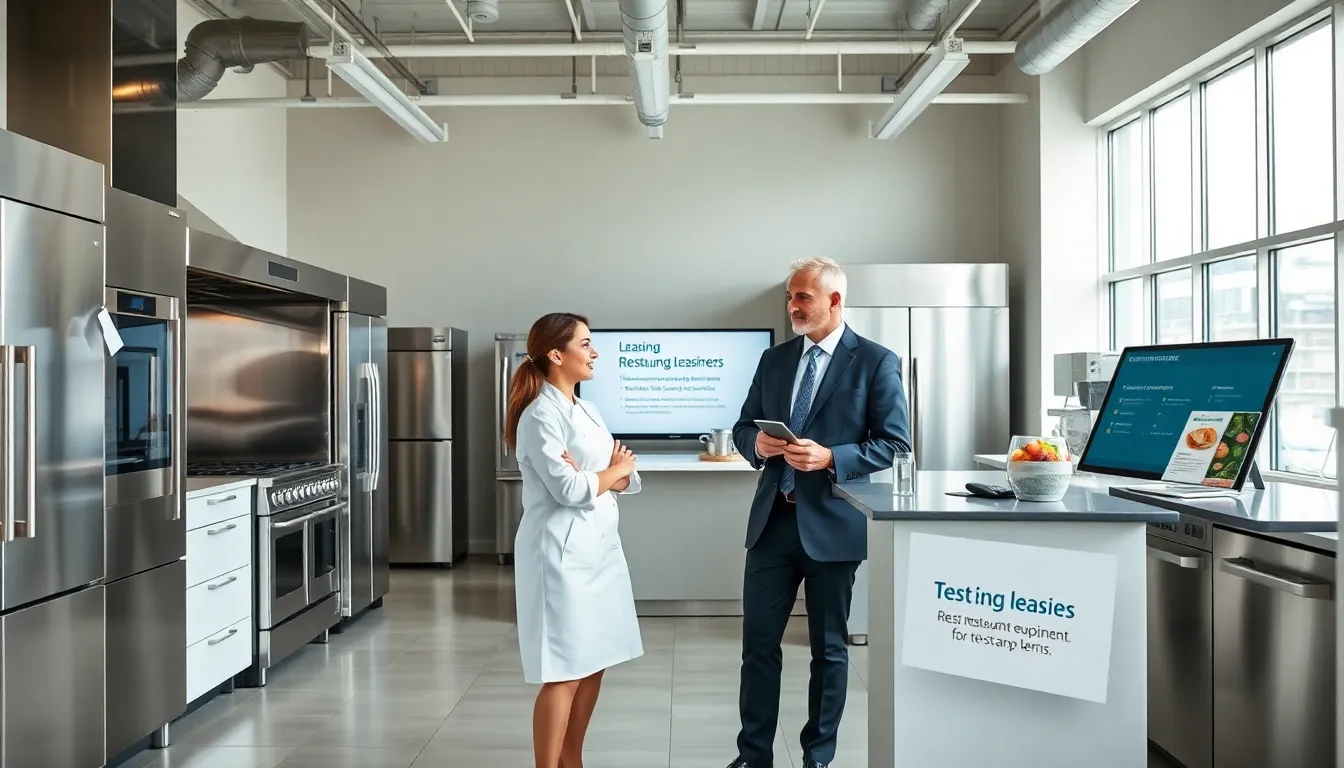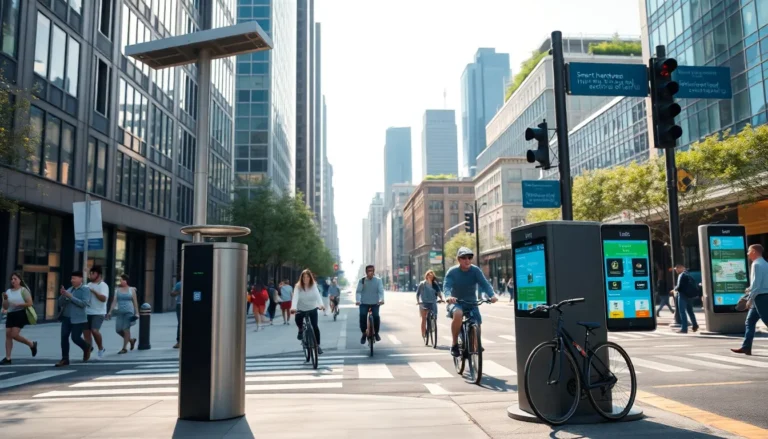Table of Contents
ToggleStarting a restaurant is a bit like learning to juggle flaming swords while riding a unicycle, challenging, but definitely possible. With so many moving parts, every startup needs an edge to stand out in the crowded culinary scene. One strategic move that can set a restaurant apart is leasing equipment. Instead of shelling out a fortune for shiny ovens and reliable fryers, startups can leverage leasing to keep their budgets intact while still serving up top-notch dishes. Let’s jump into why this option is a smart play for fledgling restaurateurs.
What Is Restaurant Equipment Leasing?

Restaurant equipment leasing is a financing option that allows startups to use necessary kitchen tools without purchasing them outright. Instead of making a hefty cash investment, businesses can rent the equipment over a specified term. This enables owners to access high-quality gear, from commercial stoves to dishwashers, while spreading out payments. Imagine being able to try before you buy, leasing lets entrepreneurs test how well specific equipment fits their culinary needs before committing to a purchase.
Benefits of Leasing Equipment for Startups
Leasing equipment comes with a plethora of benefits, especially for new businesses. First up is cash flow: startups can conserve their capital for other essential expenses. When cash doesn’t flow freely, leasing provides immediate access to high-quality equipment without the initial significant expense.
Also, leasing often includes maintenance services, which means startups aren’t on the hook for costly repairs that could arise. Also, flexibility is another vital perk. As business needs evolve, leased equipment can be swapped for newer models that better suit the changing demands of the restaurant industry.
Finally, leasing can enhance a restaurant’s appeal. Top-notch equipment ensures high-quality food production, eventually leading to better customer satisfaction, and, you guessed it, higher profits.
Types of Equipment Typically Leased
Various types of equipment are commonly leased in the restaurant sector. Startups often focus on the essentials:
- Cooking Equipment: This includes ovens, ranges, fryers, and grills, crucial for food preparation. High-quality cooking gear can significantly impact food quality and efficiency.
- Refrigeration Equipment: Commercial refrigerators and freezers keep ingredients fresh and compliant with health codes. Leasing ensures sharks don’t need to freeze their budget on these significant investments.
- Dishwashing Equipment: Efficiency is key, and leasing dishwasher equipment helps restaurants efficiently manage their cleanliness standards without incurring massive upfront costs.
- Bar Equipment: For beverage service, leasing can provide ice makers and coffee machines, enhancing menu options without the hefty price tag.
With various options available, startups can tailor their equipment leases to meet individual menu requirements and service levels.
Factors to Consider When Leasing Equipment
Leasing isn’t without its considerations. Startups should evaluate several factors before diving into leases:
- Budget Constraints: Before committing, it’s vital to analyze monthly costs, including any maintenance fees. This ensures the lease fits seamlessly into the overall budget.
- Lease Duration: How long does a restaurant need the equipment? Lease lengths can vary greatly, so understanding needs is crucial.
- End-of-Lease Options: Knowing what happens at the end of a lease is essential. Can equipment be purchased at residual value? Are there options for renewal? Awareness of these details can shape future planning.
- Credit Requirements: Startups often face scrutiny about their credit history. Being prepared means knowing the leasing company’s requirements and ensuring compliance to secure favorable terms.
Finding the Right Leasing Partner
Choosing a leasing partner can make or break a startup’s experience. To start, entrepreneurs should research reputable leasing companies that specialize in restaurant equipment. Consider reviews from other businesses and engage with community forums to gather insights.
Next, look for personalized service. A leasing partner should understand a startup’s unique needs and be willing to offer tailored solutions. Transparent communication is key, so ensure the partner readily offers clear terms and allows for direct conversation to address any concerns.
Finally, think about flexibility. The right leasing partner will work with a startup as it grows, ensuring they have access to the latest equipment as their business expands.
Understanding Lease Terms and Conditions
Navigating lease terms can feel like reading a foreign language. But, familiarity with common terms can help clarify several essential points:
- Monthly Payment Structure: Understand how payments are structured and if there’s room for negotiation.
- Maintenance Clauses: Some leases include maintenance services while others require lessees to handle repairs. It’s important to clarify this detail upfront.
- Early Termination Fees: These can be steep, so startups should be aware of potential costs if they need to return equipment early.
- Residual Values: Comprehending how much a business may need to pay if they want to keep leased equipment at the end of the lease is crucial.




